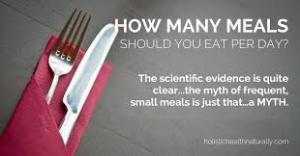There is a lot of misinformation circling around in mainstream nutrition.
Here are the top lies, myths and misconceptions.
- Ditch fat to Lose Weight
In fact, diets that are high in fat (and low in carbs) cause much greater fat loss than diets that are low in fat. So long as we use healthy fats – coconut, ghee, unprocessed butter from grassfed animals, and olive oil for use at room temperature. Also avocado, olives, salmon and egg yolks. Egg yolks? Yes. that brings us to …..
2. Eggs Are Unhealthy
Recently it has been proven that the cholesterol in the diet does NOT raise the cholesterol in blood. In fact, eggs primarily raise the “good” cholesterol and are NOT associated with increased risk of heart disease.
What we’re left with is one of the most nutritious foods on the planet.
3. Saturated Fat is Bad
A massive review article published in 2010 looked at 21 prospective epidemiological studies with a total of 347.747 subjects. Their results: absolutely no association between saturated fat and heart disease .
Newer studies have proven that saturated fat does not cause heart disease. Natural foods that are high in saturated fat are good. Coconut oil and ghee. Animal fats.
4. The major component of the food pyramid should be grains, especially whole grains.
Grains are fairly low in nutrients compared to other real foods like vegetables. They are also rich in a substance called phytic acid which binds essential minerals in the intestine and prevents them from being absorbed.
Modern wheat contains a large amount of a protein called gluten.Eating gluten can damage the intestinal lining, cause pain, bloating, stool inconsistency and tiredness. Gluten consumption has also been associated with schizophrenia and other serious disorders of the brain.
5. Excess Protein can harm Bones and Kidneys
It is claimed that a high protein diet can cause both osteoporosis and kidney disease.
However, studies show that eating a high protein diet is associated with improved bone health and a lower risk of fracture. High protein also lowers blood pressure and improves diabetes symptoms, which should lower the risk of kidney failure.
6. Choose Low-Fat Foods for good health
In low-fat products, healthy natural fats are being replaced with substances that are extremely harmful, such as sugar or artificial sweeteners, to make them palatable.
They are extremely unhealthy. Always choose full fat dairy and any other products.
7. The idea that you should eat many small meals throughout the day in order to “keep metabolism high” is a persistent myth that doesn’t make any sense.
It is not natural for the human body to be constantly in the fed state. In nature, we used to fast from time to time and we didn’t eat nearly as often as we do today.
Intermittent fasting – 14 – 16 hours gives the hormones a chance to recover, improves secretion of growth hormone, which helps weight loss.

Be well informed. Stay Healthy!
Images Courtesy Google




















